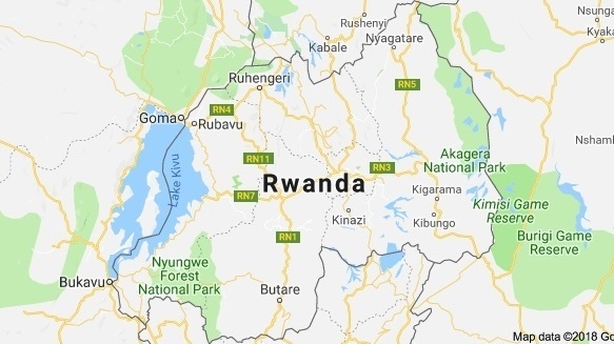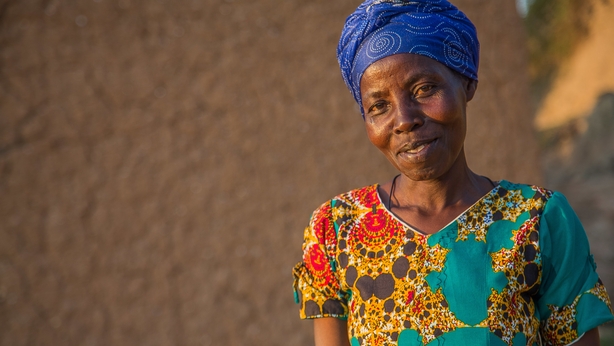Since the horrendous genocide in Rwanda in 1994, the women in that country are still striving to re-build their lives.
It is almost 25 years since Rwanda turned on itself, unleashing a terrifying wave of violence that saw up to one million people murdered in just three months.

These people, mostly from the Tutsi ethnic group, were systematically killed in Rwanda by Hutu extremists in what has become known as one of the most shameful episodes of the twentieth century.
Ethnic tensions fed and fuelled the period in the run up to the genocide. Hutu politicians had spent at least four years travelling the country, training militia and drawing up lists of Tutsi. The slaughter was meticulously planned under the watching eyes of the world, who made a conscious decision not to act.
We need your consent to load this rte-player contentWe use rte-player to manage extra content that can set cookies on your device and collect data about your activity. Please review their details and accept them to load the content.Manage Preferences
Kathryn Thomas on Radio One in 2014 looks at the suprising role of music in Rwanda. Music Passport: Journey Through Genocide in Rwanda
Next April, Rwanda will pause to remember its dead. The country has been transformed since 1994, but for many Rwandans the anniversary will bring back awful memories.
Ancilla Uzamukunda (51) lost her husband in the genocide. Tragically, he was killed shortly after the birth of their only child.
The trauma of what she had experienced caused Ancilla to withdraw from the world. She was haunted by the memory of the genocide. Overcome with grief, Ancilla barely left her house.
Help came in the form of a local group that helped women – many of whom were left widowed by the genocide – to come together and re-build their lives.
Discovering the group was the first step on the long road to recovery for Ancilla.
"My life started again when I found something which motivated me to get out of my house", Ancilla says.
"I got interested in different topics, such as decision making rights for women and gender-based violence. I started to ask myself: if I am part of something, if I know my rights, why not become a decision maker in my community?"
The genocide left behind it thousands of widows, who suddenly had to pick up the pieces and rebuild the country. As men were killed or forced to flee, after the genocide women made up over seventy per cent of the remaining population.
We need your consent to load this rte-player contentWe use rte-player to manage extra content that can set cookies on your device and collect data about your activity. Please review their details and accept them to load the content.Manage Preferences
Radio One reports on 20 years on from the Rwandan genocide in 2014
A conscious decision was made to put gender equality at the heart of the reconstruction process. This included putting in place gender quotas for female representation in parliament. As a result, over 60 per cent of MPs are women, giving Rwanda the highest rate of female parliamentarians in the world.
However, in spite of its remarkable progress on female political representation, Rwanda is far from being a safe place for women. At the local level women still face challenges such as discrimination and violence. Traditional cultural norms are still very entrenched. Approximately one in three Rwandan women have been victims of violence.
Ancilla joined a group whose role it was to report cases of gender-based violence to the authorities. Soon, she was elected its leader.
"I am extremely motivated by the fact that members of my community trust me and see me as a guide when it comes to women related issues," Ancilla proudly declares.

The cases she works on are difficult but she is committed to helping women in her community receive the support and assistance they need from the authorities.
When asked about any advice she could give to women in the same situation across the world, Ancilla has no doubt that everything is about empowerment.
"Everyone has both rights and capacity," she says. "If you decide to do, you will do. Opportunities are out there, and if you go out, meet people, and engage in something meaningful, you will regain your life".
Like Rwanda itself, Ancilla has emerged from the shadow of chaos to rebuild her life.
The views expressed here are those of the author and do not represent or reflect the views of RTÉ.



